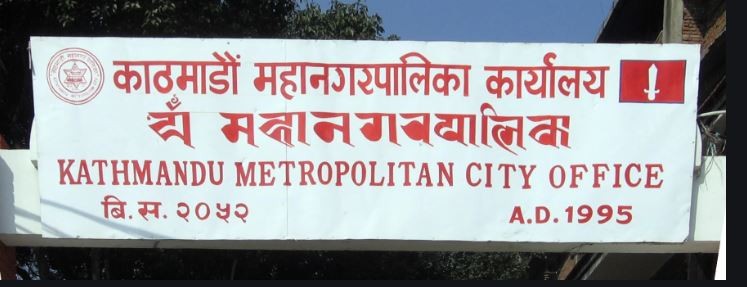Freeing capital streets of vagabonds an uphill task for KMC

By Arpana Adhikari
Kathmandu, Nov. 24: The Kathmandu Metropolitan City (KMC) has recently announced its ambitious plan to make its streets free from vagabonds and homeless people by this December.
The KMC declaration is said to be made on the 25th KMC Day. Kathmandu will be the second city in the nation to get this status, after Hetauda.
Mayor Bidhya Sundar Shakya said the KMC had initiated the drive to assure that no one has to spend their nights under the open skies, without proper protection.
This is not a new goal the city office has set. Since last two years, the metropolis has been carrying out the drive to make the streets of the KMC free from the homeless and beggars.
In December 2017, KMC and Manav Sewa Ashram, a community-based organization, had signed a Memorandum of Understanding (MoU) to rescue the frail and feeble homeless people from the Kathmandu and to provide shelter to them at Samakhusi and Budanilkantha based ashrams.
As per the agreement, the KMC has to provide Rs. 166,200 per month as payment to rent of the two shelter homes operated by the Manav Sewa Ashram (MSA) in Kathmandu. In May 2019, KMC had handed over a vehicle purchased for the management of street peoples.
So far, 625 homeless and needy people have been rescued from the streets of Kathmandu, of which 105 have been sheltered in the Kathmandu based ashrams, some were reunited to their families, some refused to be rehabilitated and remaining were transferred to its other branches, MSA informed.
Similarly, in 2018, the ashram had launched a beggar-free campaign in the Pashupati area in coordination with the Pashupati Area Development Trust (PADT).
Since then more than 350 beggars were removed from the Pashupati area alone, said MSA. But the beggars can still be seen in the streets of Kathmandu.
There lies a major challenge in the way to achieve this status. The professional beggars who have made begging as a business and who are using others in begging are the ones who have posed a challenged to the authority.
Bartaula said, “For some people begging is not their choice but compulsion. Poverty, physical disabilities, senility and poor health condition have pushed a section of these people to resort to begging. And the drive is focused on rescuing such deprived people.”
But those who are in begging business by their choice always refused to get rehabilitated because they are making handsome money through begging, said Bartaula.
The study conducted by the government shows that a person earns Rs. 150 to Rs. 500 daily from begging and some are making up to Rs. 2,000.
Begging in public places is a punishable act as per the new law, but the law has not been fully implemented yet, said Bartaula.
The MSA cannot manage such beggars, so the local bodies and Nepal Police have to carry out special programmes to manage such people.
Hari Bahadur Kunwar, chief of the Department of Urban Management, said the KMC prepared a proper mechanism to deal with the issue. A management main organising committee has been formed in the chairmanship of Mayor Shakya.
KMC will collaborate with Police and District Administration Office.
“We have heard begging racket is active in Kathmandu. But we don’t have evidences,” said Kunwar adding that since begging is a punishable act, they are committed to break this racket.
After rescuing beggars and vagabonds, they would make screening and decide where and how these people would be settled, he added.
“We will provide shelter for those who are needy and homeless. If they are in any forms of addiction, then they will be sent to the rehab center and those who have families will be reunited to their families” said Kunwar.
It is estimated that there are still 150 homeless people living in Kathmandu and they will be rescued soon.
Recent News

Do not make expressions casting dout on election: EC
14 Apr, 2022
CM Bhatta says may New Year 2079 BS inspire positive thinking
14 Apr, 2022
Three new cases, 44 recoveries in 24 hours
14 Apr, 2022
689 climbers of 84 teams so far acquire permits for climbing various peaks this spring season
14 Apr, 2022
How the rising cost of living crisis is impacting Nepal
14 Apr, 2022
US military confirms an interstellar meteor collided with Earth
14 Apr, 2022
Valneva Covid vaccine approved for use in UK
14 Apr, 2022
Chair Prachanda highlights need of unity among Maoist, Communist forces
14 Apr, 2022
Ranbir Kapoor and Alia Bhatt: Bollywood toasts star couple on wedding
14 Apr, 2022
President Bhandari confers decorations (Photo Feature)
14 Apr, 2022











